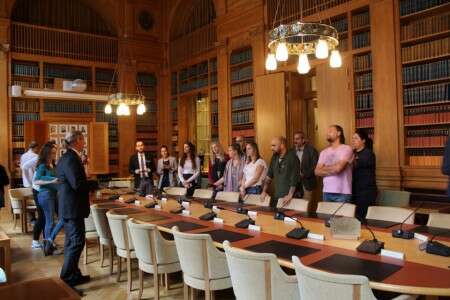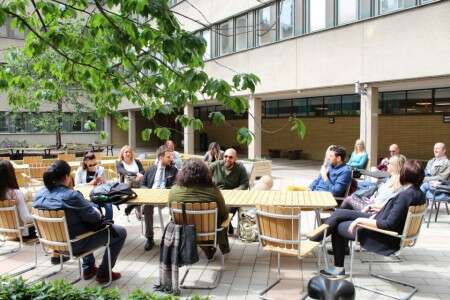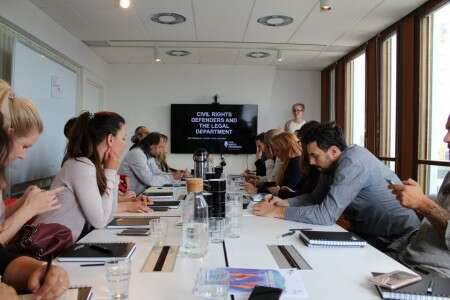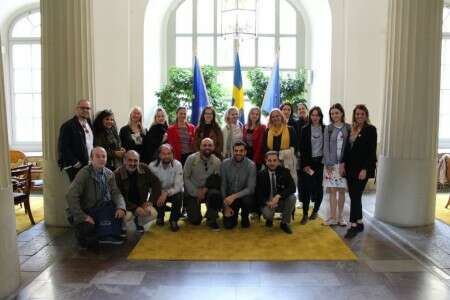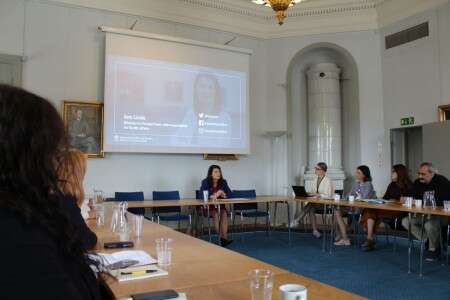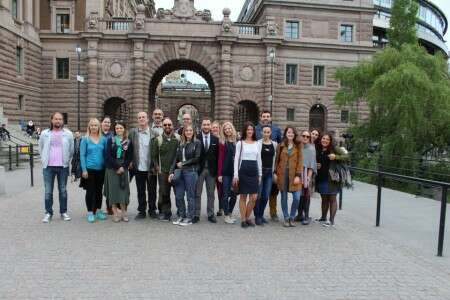According to a Eurobarometer survey, at the end of 2018, Sweden is one of the EU Member States whose citizens have the highest level of confidence in the European Union. As many as 71% of Swedes believe that their voice is heard in the EU, there is also a high degree of trust in Swedish institutions, while 88% of citizens have a positive attitude about the national economy.
On the other hand, the situation in Serbia is such that only 55% of citizens would support Serbia's EU membership. With this information in mind, the Belgrade Open School (BOS) organized its last study visit as part of a three-year project, "Civil Society as a Force for Change in Serbia's EU Accession Process," which is being implemented with the support of Sweden to try to get to the bottom of some of the causes of these differences. Together with representatives of 17 partner organizations on the project, we visited institutions and civil society organizations and media in Stockholm from 10-14 June 2019, with whom we discussed how institutions in Sweden gain the trust of the citizens, what is affecting citizens' mistrust in Serbia, and Serbia's current position in the European integration process.
Transparency and openness = two biggest enemies of corruption
A topic that was often discussed during the visit was corruption, the fight against corruption and how much it affects the negative image that Serbian citizens create about their institutions at the local and national level, about health care systems, education and many others. The National Anti-Corruption Unit of the Swedish Prosecutor's Office stressed the importance of institutions being transparent at every level of government, because "as shown by the example of Sweden, which has been at the top of the list of states with the lowest level of corruption for years, openness is the biggest enemy of corruption". This seems like a particularly important message that civil society in Serbia is also trying to send to authorities and institutions, in an environment where there is a noticeable decline in ways to access the information of public importance, and where a new Commissioner for Information of Public Importance after six months has still not been elected.
An open society associate is also independent, free media. Representatives of different national institutions in Stockholm kept emphasizing the importance of the role of the media as a corrective factor in the behavior of both the public and business sectors. On the other hand, representatives from the Swedish Investigative Journalists Association with more than 1000 members and Medierna, a production journalist station that monitors the work of other media in Sweden and reports on cases of misinformation and tendentious media reporting through their podcast on Swedish national radio, emphasized the good cooperation they have with public institutions and their responsiveness upon media inquiries. Often our hosts, representatives of the civil society of Sweden - Olof Palme, Civil Rights Defenders, Concord Sweden, mentioned the important relationship between civil society and the media and the possibility for civil society in Sweden to reach the general public through independent media or exert some form of pressure on the competent authorities.
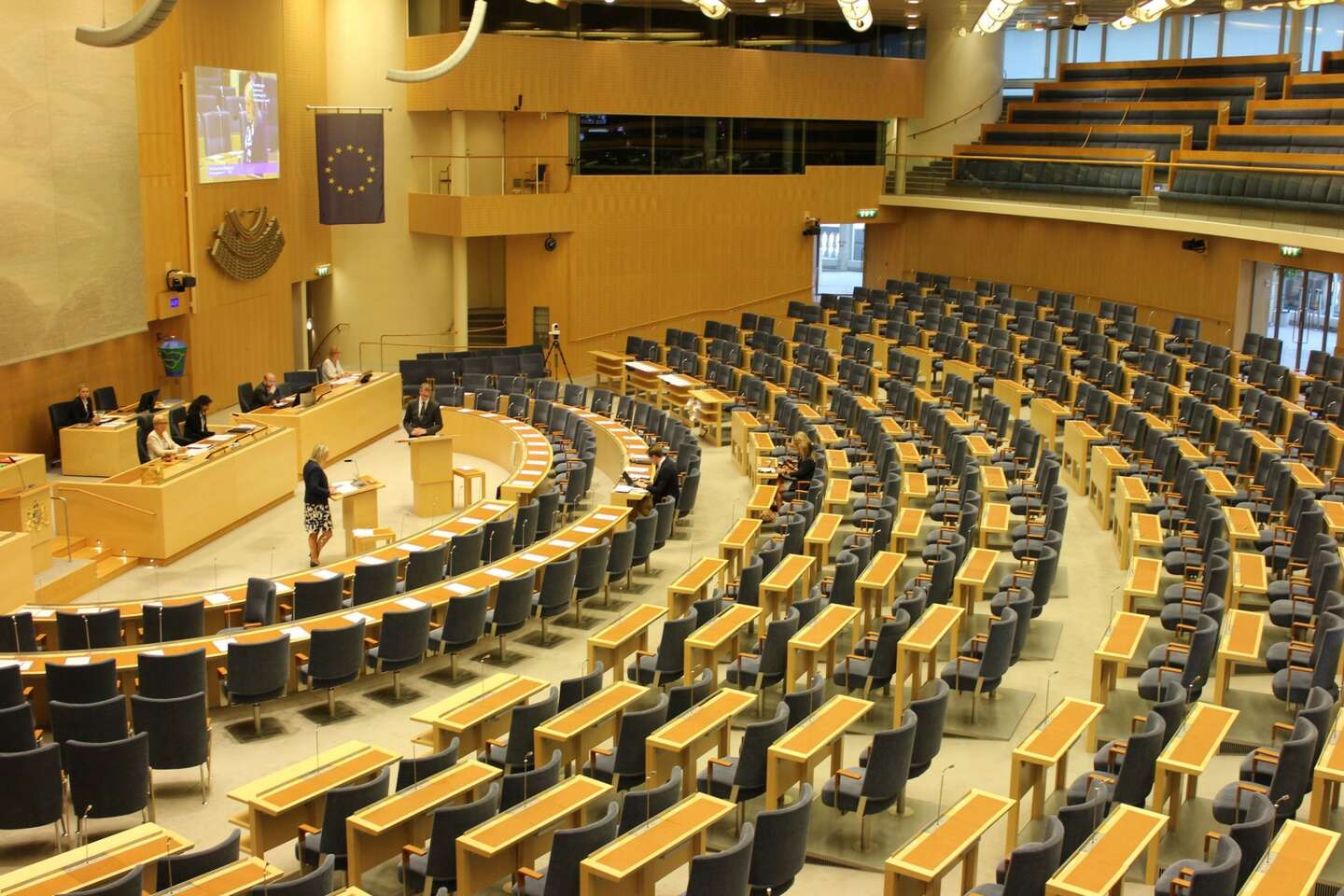
Traditional support of Sweden to the enlargement of the European Union
During the five days of the visit, we could hear at various meetings that Sweden has traditionally supported further EU enlargement. According to the EU Department within the Swedish Ministry for Foreign Affairs, the Swedish government is of the view that enlargement is a fundamental success of the EU. It strengthens the economy, European identity and creates a sense of belonging. They consider this important especially at a time when in the closest EU neighborhood, in the Western Balkans, Russia and China have an assertive approach to expanding their influence.
At the meeting it was also said that Serbia, which they see as leader of the process of European integration of the Western Balkans, and Sweden have excellent cooperation and dialogue, but that Sweden recognizes key areas in which Serbia has problems - rule of law, freedom of the media, cooperation with civil society. This was also indicated in the latest European Commission Report on Serbia, which for the first time in a long time has used, for diplomatic vocabulary, strong words when describing mentioned areas, such as "serious concern", "deteriorization", " urgent need". Just how much is an internal system of checks and balances necessary for the functioning and fostering of democracy, emphasized the Minister for Foreign Trade of Sweden, Ann Linde. She spoke with our participants about the great importance and role of parliament as a corrective factor of government in Sweden, but also about its important role in the process of European integration of a country.
At the Swedish Institute for European Policy Studies (SIEPS), it was talked about Serbia's European path, from their point of view as an independent government research center which has been dealing with European issues for years. The participants made an important contribution to questions of SIEPS about how the rule of law can be further emphasized in Serbia's EU accession process. The discussion that rounded out this meeting and the study visit was that the idea of stability in the Western Balkan country or region should not be the guiding principle of the European Union. Civil society in Serbia must work hard to improve the rule of law in Serbia, but the EU can change its reporting approach in Serbia. In addition to the annual progress report the European Commission is putting together, the proposal is that there is another independent, expert report that would more effectively monitor and report on rule of law reforms, such as the Priebe Report, which in 2015 greatly helped Northern Macedonia cope with the high degree of corrupt practices and misuse of public resources for the private purposes of government officials.

